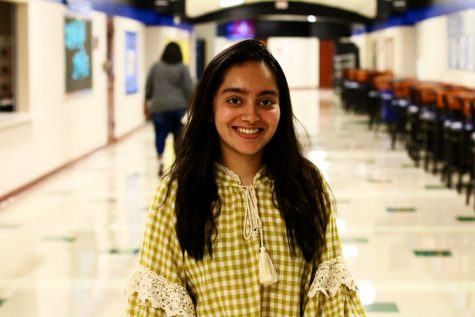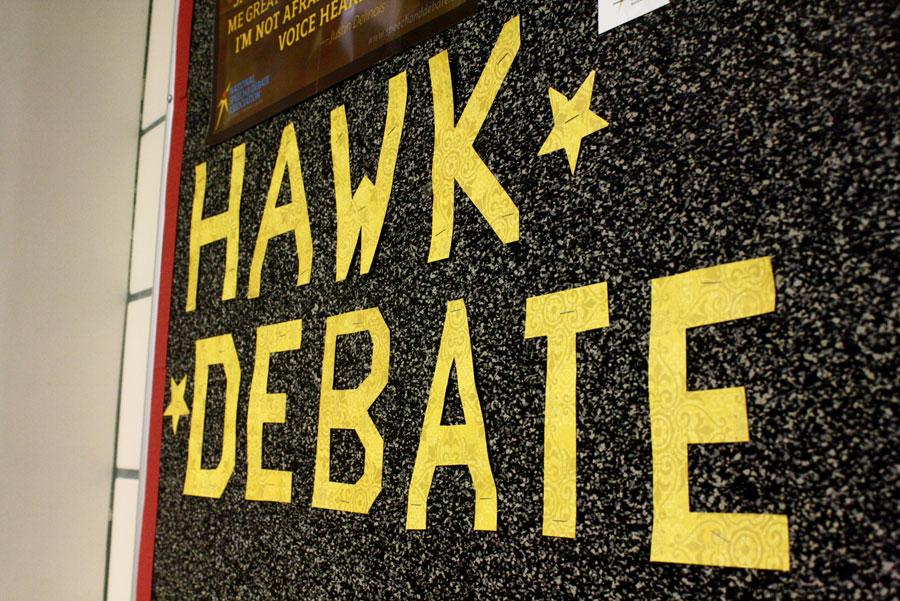‘Spreading’ to state
Update: Ali Rizvi and Andrew Nguyen placed 3rd out of the 62 teams that participated in the tournament.
Two debate pairs will be competing in UIL State tournament on March 18-19: debate president Ali Rizvi partnered with sophomore Andrew Nguyen and senior Inaara Jamal partnered with junior Alyssa Foy.
The policy topic – Resolved: The United States federal government should substantially curtail its domestic surveillance – for this tournament was announced at the beginning of the 2015-2016 school year.
“I think one of the hardest things about going to any state meet is that every competitor is a champion of their district,” debate coach Leeann Solice said. “It can be a very intimidating environment because so many people are there and they have done the preparations to be winners at the local level and the quality should be pretty strong.”
On March 18, the debaters will participate in four debates during the preliminary rounds which will last two hours each. If the teams are able to make it to elimination rounds, they will go to four more rounds which will take place on March 19.
“Going to state UIL this year is something we did not qualify for last year,” Rizvi said. “Knowing that we can go this year we are definitely going to try as hard as it takes to get into those elimination rounds and put Hebron Debate on the map.”
Ever since the topic has been released, the teams have been prepping by attending debate practices every Tuesday and Thursday after school.
“I expect them to do extremely well and expect them to break into the top elimination rounds,” Solice said. “But this state meet is very capricious if you have one judge that you aren’t able to adapt to or has a little bit of an argumentation bias, then that loss will keep you from advancing. So you have to walk a really tight rope of really matching each judge’s style.”
The teams will be given eight minutes for preparing their arguments and each member will be given eight minutes to talk, five minutes to rebut and three minutes to ask questions to the opposing team.
“I am very excited having qualified UIL State,” Foy said. “My partner and I have been preparing for UIL state by having practice rounds a couple times a week and doing a lot of our prep on our own at home and then come back to school to discuss.”
During the debate, one team will be affirmative and the other, negative. The affirmative team will plan how to solve or deal with the topic while the negative pair will argue as to why the other side is incorrect.
“The strength we have is that we have debaters who are really good at adapting to different judging styles,” Solice said. “Our teams are also very good at being persuasive to the judges. A lot of teams will go to the state meets and they’ll be able to do only this or only that but we have a lot of flexibility and that’s probably our biggest strength.”
If the teams make it to the elimination rounds, they will have the opportunity to tap into a multi-millionaire scholarship pool which is offered to students who make it to octafinals or better.
“One thing about having a big team like Hebron is that we encourage and ask a lot of our debaters to help us out,” Rizvi said. “There is a lot of work you do in debate: countless amount of hours for research and debating. So knowing that you have a strong team that is just not dedicated to themselves but also to everyone on the team it’s very helpful to know that you have a lot of other people helping you every step of the way to make sure you get to those elimination rounds and do well at state.”

Senior Yusra Waris is the editor-in-chief and this is her fourth year on staff. She enjoys watching old Disney movies, traveling, and playing with her...



